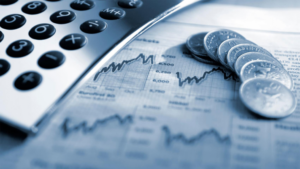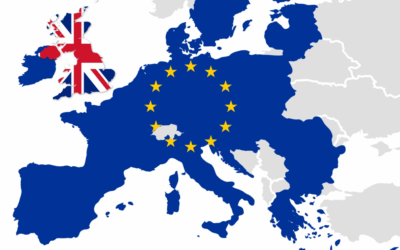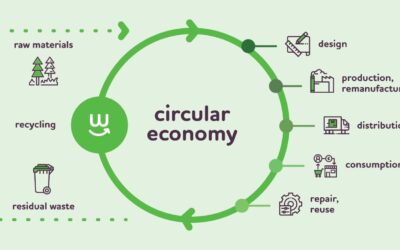
For this week’s article, the economic collaboration and the corporate environment between France and South Korea will be addressed. The aim of this article is to delve into the economic relations between the two countries, treaties and how corporations together with human resources shaped each other’s societies.
France considers South Korea a prominent partner in Asia, ranking as its third-largest trading ally in the region. In 2021, the bilateral trade between France and Korea experienced a notable 22% increase, reaching €10.4 billion and surpassing the €10 billion milestone for the first time. Despite challenges posed by the crisis, France recorded a bilateral trade deficit of €840 million, marking a precedent since the Free Trade Agreement (FTA) came into effect.
Given the shared status of France and Korea as key hubs for innovation and the creative economy, the two nations are actively fostering their collaboration in industrial and technological realms, with a focus on startups and pivotal future technologies. French exports have diversified, encompassing cutting-edge ground transport equipment, aeronautical products (including the latest Airbus A350s), perfumes, cosmetics, chemicals, industrial and agricultural machinery, and agrifood products.
Economic relations in the past:
On June 6, 2006, France and the Republic of Korea signed in Paris the extradition convention that serves as a complementary framework for bilateral judicial relations, primarily grounded in the Convention on Mutual Assistance in Criminal Matters signed on March 2, 1995. This convention draws heavily from the provisions of the European Convention on Extradition dated December 13, 1957, and aligns with fundamental principles of French legislation on the matter.
Political dialogue between France and the Republic of Korea has significantly intensified in the beginning of the 2000s, culminating in the establishment of a „global partnership“ during the official visit of President Roh Moo-hyun to France in December 2004. Bilateral contacts have multiplied, with the South Korean Prime Minister visiting Paris in June 2006 to celebrate the 120th anniversary of diplomatic relations.
Regarding Korean investments in France, they totalled €550 million, accounting for 7% of Korea’s total investments in European Union countries in 2006-2007.
Franco-Korean relations defined in numbers:
France is committed to enhancing market access for its products in Korea, particularly in the agrifood sector. In 2020, French Foreign Direct Investment (FDI) stock in Korea reached €3.9 billion, experiencing a 3% decrease from 2019, while Korean FDI stock in France amounted to €1.28 billion, marking an 8% decrease from 2018. Among European investors in Korea, France holds the third position, following the Netherlands and Germany.
South Korea’s Exports to France (2021):
In 2021, South Korea exported goods totalling $4.7 billion to France. Key export categories included cars ($1.49 billion), passenger and cargo ships ($727 million), and broadcasting equipment ($199 million). Over the past 26 years, South Korea’s exports to France have exhibited steady growth, with an annualized rate of 4.11%, rising from $1.7 billion in 1995 to $4.84 billion in 2021.
France’s Exports to South Korea (2021):
Conversely, in 2021, France exported goods worth $5.76 billion to South Korea. The primary products exported were trunks and cases ($399 million), beauty products ($307 million), and packaged medicaments ($249 million). Over the past 26 years, France’s exports to South Korea have shown consistent growth, with an annualized rate of 4.17%, increasing from $1.99 billion in 1995 to $5.76 billion in 2021.
Trade Comparison (2021):
In terms of the Economic Complexity Index (ECI), South Korea held the 4th position with an ECI of 1.82, while ranking 5th globally in total exports at $653 billion. In the same year, France secured the 15th spot in the ECI with a value of 1.35 and stood 8th in total exports, amounting to $569 billion.
Communities:
Given the rising influence of the Korean wave, exemplified by hits like Squid Game and the global phenomenon BTS (K-pop boy band), and despite the challenges posed by Covid-19, the French community stands out as one of the prominent European communities in South Korea, numbering over 4.400 individuals. Positioned as the world’s 10th-largest economy and a hub for research and development (R&D), South Korea remains an alluring destination for French businesses. Spanning from the broader Seoul area in the Northwest to the Gyeongnam region in the Southeast, the French population is strategically located within Korea’s business and industry centers. In Seoul, the French community is primarily concentrated in Seocho-gu around the French High School (LFS), in Yongsan-gu, a district hosting a significant portion of the city’s foreign communities, and in student-centric districts.
Examining the trends in the evolution of French residents in South Korea, the Covid-19 pandemic has notably impacted students and those on working holiday visas since January 2020. However, this effect has not extended to business and permanent residents‘ visas, which have shown a consistent, albeit slight increase over the past two years. Despite the challenges, the French community in South Korea remains robust.
Starting from a community size of merely 3.310 in 1988, the number of Koreans in France underwent more than a threefold increase by the year 2000, followed by an additional 30% growth by 2007. However, from 2009 to 2011, their population experienced a decline of 14%. As of 2011, the majority resides in Paris, constituting about two-thirds of the population, a shift from four-fifths a decade earlier, with the largest concentrations found in the 15th arrondissement. The gender distribution has become more imbalanced, with more than twice as many women as men, marking a change from the gender ratio a decade prior.
In contrast to the United States or Canada, which have sizable Korean American and Korean Canadian communities, a small number of Koreans in France opt for naturalization as French citizens. Among the South Korean nationals or former nationals in France, 786 individuals (6%) have acquired French citizenship, 2.268 (18%) hold permanent resident status, 6.325 (50%) are international students, and the remaining 3.305 (26%) possess other types of visas. The community of Korean descendants in France nowadays is totalling 25.417 people.
References
Bouriane, L.-L. N. (2001). L’interculturel entre l’Orient et l’Occident – les particularités et les difficultés à travers les cas des résidents coréens en France. Geneva: University of Geneva.
Committee on Foreign Affairs Foreign Affairs, Defence and Armed Forces. (2007). Draft law authorizing the approval of the extradition convention between the Government of the French Republic and the Government of the Republic of Korea. Senate .
FKCCI. (2021, October 27). Top 4 key figures about the French community in Korea. Retrieved from FKCCI: https://www.fkcci.com/actualites/n/news/top-4-key-figures-about-the-french-community-in-korea.html
Namhan South Korea. (2023, April 27). Where do Koreans live in France? Retrieved from Namhan South Korea: https://www.namhansouthkorea.com/where-do-koreans-live-in-france/
OEC. (2023, September ). South Korea/France. Retrieved from OEC World: https://oec.world/en/profile/bilateral-country/kor/partner/fra#historical-data
Photo:
https://th.bing.com/th/id/R.fcdfe9d247597303e43d969eeae01328?rik=6MvhouflK%2bGgPQ&pid=ImgRaw&r=0



